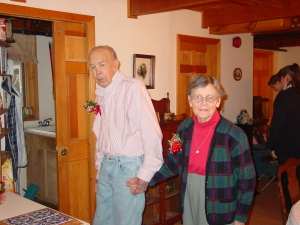Examining Intimacy among Institutionalized Elders with Mid to Late Stage Dementia
Johanna M. Wigg
Abstract
 This paper explores intimate relations between elders living with dementia in long-term care settings. By intimate relations, I am referring to holding hands, cuddling, touch, as well as loving relationships lasting months or years. With elderly populations expected to double over the next twenty years, the number of elders living with dementia and requiring the services of long-term care will also rise. The paper’s theoretical framework contrasts views of dementing illness as a social death sentence with observational data suggesting evidence of rich, intimate relations between elders living with mid to late stage dementia in long-term care settings. The data suggests demented residents experience a simultaneous social death and life. While family and friends may distance as the disease progresses, peers living with similar cognitive challenges may engage in intimacy within the long-term care environment. The data challenges the loss of personhood, related to social death. Shorter time frames, lack of past recollection and limited use of language are unique traits of the intimacy examined in this paper. The data was collected through seven months of observation at a large-scale nursing institution and ten years of participant observation at a small, homelike facility.
This paper explores intimate relations between elders living with dementia in long-term care settings. By intimate relations, I am referring to holding hands, cuddling, touch, as well as loving relationships lasting months or years. With elderly populations expected to double over the next twenty years, the number of elders living with dementia and requiring the services of long-term care will also rise. The paper’s theoretical framework contrasts views of dementing illness as a social death sentence with observational data suggesting evidence of rich, intimate relations between elders living with mid to late stage dementia in long-term care settings. The data suggests demented residents experience a simultaneous social death and life. While family and friends may distance as the disease progresses, peers living with similar cognitive challenges may engage in intimacy within the long-term care environment. The data challenges the loss of personhood, related to social death. Shorter time frames, lack of past recollection and limited use of language are unique traits of the intimacy examined in this paper. The data was collected through seven months of observation at a large-scale nursing institution and ten years of participant observation at a small, homelike facility.
Opening Doors for those Living with Dementia
Intimacy among the Socially Dead
April 22, 2011


